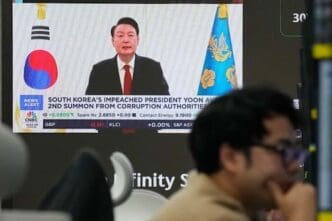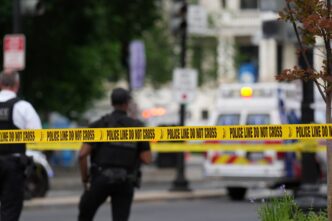South Korea’s political landscape faces significant turbulence as the main opposition submitted an impeachment motion against Acting President Han Duck-soo. The action arises from increasing discord surrounding his hesitance to appoint three Constitutional Court justices, a critical decision as the court prepares to deliberate on serious charges against the impeached President Yoon Suk Yeol.
The impasse in appointing Constitutional Court justices has heightened the ongoing friction between the liberal opposition and President Yoon’s conservative party. This political stalemate risks further political paralysis, potentially destabilizing diplomatic efforts and impacting financial markets. The urgency of this issue is underscored by the opposition-controlled National Assembly’s recent approval of motions advocating for the judicial appointments, setting the stage for the court’s deliberations on whether to dismiss or reinstate Yoon.
National Assembly Speaker Woo Won Shik criticized Han for his insistence on bipartisan agreement before making judicial appointments, describing it as a refusal that violates the National Assembly’s prerogative to select court justices. Han, in response, has indicated that he will refrain from appointing justices without consensus, raising further concerns about governance and stability during this critical period.
The People Power Party, supporting Han, boycotted the National Assembly vote, arguing that Han should not assume presidential authority in the absence of a formal removal of Yoon from office. The Democratic Party, in contrast, accuses the conservatives of attempting to manipulate the judicial process to shield Yoon from accountability, prompting them to push for Han’s impeachment, which could be debated in a floor vote shortly.
Yoon, whose presidential duties were suspended following his impeachment earlier in December, faces allegations of orchestrating a rebellion—a charge stemming from an attempted, albeit short-lived, power grab. This move has incited a prolonged political crisis in South Korea, a country known for its democratic robustness. The Constitutional Court’s decision will play a pivotal role in determining the future of Yoon’s presidency, requiring six votes from the nine-member panel for a conviction. However, with three seats currently vacant, the outcome remains uncertain.
Han has also faced criticism over his vetoes on agricultural legislation pushed by the opposition and his refusal to authorize investigations into Yoon and his wife, Kim Keon Hee, over alleged corruption. If Han is ousted through impeachment, Deputy Prime Minister Choi Sang-mok would be next in line to step into his role.
The legal framework surrounding Han’s potential impeachment presents complexities. Generally, a simple majority in the National Assembly is sufficient to impeach most officials. Yet, in the case of a sitting president, a two-thirds majority is necessary. Disagreements over the applicable standard for an acting president add another layer of uncertainty. The Democratic Party, holding 170 of the assembly’s 300 seats, would need cross-party support, including from factions within Yoon’s party, to achieve a two-thirds majority.
Yoon has evaded numerous requests for questioning by legal authorities on rebellion charges. He has also thwarted efforts to search his office. The Corruption Investigation Office for High-Ranking Officials, collaborating with police and military investigators, plans to interrogate Yoon on charges of authority misuse and instigating rebellion, following unsuccessful attempts to summon him for questioning over the holiday period.
Several officials linked to the martial law attempt, including Yoon’s defense minister and police chief, have already been detained, evoking memories of South Korea’s authoritarian past. During a press conference, Yoo Seung Soo, defense lawyer for the former Defense Minister Kim Yong Hyun, reiterated Yoon’s justification for the martial law, portraying it as a preventative measure against the opposition’s alleged political maneuvering.
The political strife in South Korea underscores the fragile balance of power and the intricate dynamics between governmental branches. As tensions mount, the resolution of these impeachment proceedings and court appointments will heavily influence the nation’s path forward, with significant implications for its governance and democratic resilience.
Source: News4jax








